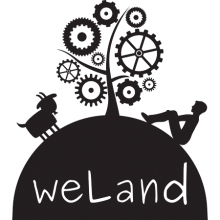-
Join the
Digital Meets Culture
Open Newsroom! If you have interesting news and events to point out in the field of digital cultural heritage, we are waiting for your contribution.
If you have interesting news and events to point out in the field of digital cultural heritage, we are waiting for your contribution.
-
Free text
-
-
Upcoming events
-

Step into the world of history and heritage through stunning 3D collections that bring the past to life. From pre-cinema artifacts in Girona to everyday objects and cultural emblems from the ancient oppidum of Bibracte in Burgundy, these collections … Continue reading →
 The deadline for submitting photographic projects for the AIPAI PHOTO CONTEST has been extended
The deadline for submitting photographic projects for the AIPAI PHOTO CONTEST has been extendedThe deadline for submitting photographic projects for the 3rd edition of the AIPAI PHOTO CONTEST, the photography contest organized by the Italian Association for Industrial Archaeological Heritage ETS, has been extended to October 31. The contest is organized in collaboration with DICEA … Continue reading →
 Brussels, November 13th and 14th, 2024
Brussels, November 13th and 14th, 2024On November 13th and 14th, OpenLab.brussels is hosting the international conference “Creating Knowledge through Participatory Research” in Brussels. The OpenLab.brussels is a joint venture of ULB-VUB dedicated to participatory research. It aims to mobilize our academic community and public or private stakeholders … Continue reading →
Area: digital heritage

In February 2015, a lab test was designed to investigate the usability of the Berlin Wall application, which is representative of an interactive TV application using valuable cultural heritage content. The test was conducted with the on-air application. Test participants were … Continue reading
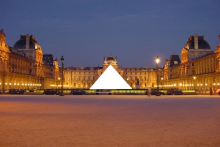
There’s a big buzz currently going on about the issue of Freedom of Panorama, connected to the neverendig story of copyright in the changing digital world, and particularly connected to photography and to user-generated content. Freedom of Panorama is a … Continue reading
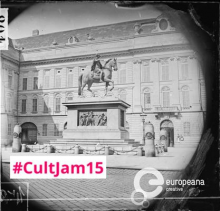
Innovation Space leader Gregory Markus will be talking in the main track of the conference, Europeana TV pilot will be presented by Kelly Mosterts in the parallel sessions, and several colleagues of Europeana Space are part of the conference advisory board! Continue reading
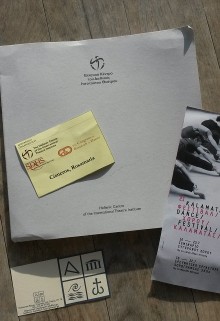
by Rosemary Cisneros, Coventry University. The ESpace Dance Pilot travelled to Athens, Greece early June 2015 to attend the Society of Dance History Scholars and Congress of Research in Dance conference. The title of the conference Cut & Paste: Dance Advocacy … Continue reading
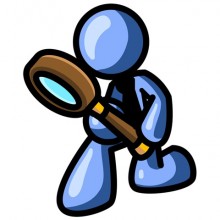
“Excellent progress: the project has fully achieved its objectives and goals for the period and has even exceeded expectations”. So the European Commission concluded on 19 May, in Bruxelles, its review of the EAGLE project’s activities. The project’s conclusion looks really promising! Stay tuned! Continue reading
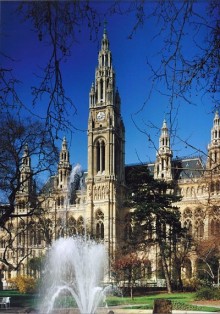
The XX Conference on Cultural Heritage and New Technologies, organised by the Department of Urban Archaeology of Vienna’s Museum, is being held in the Vienna City Hall on 2-4 November 2015. The conference’s call for paper/poster/video expires on 15 June 2015 (deadline extended). This year, the event is dedicated to the theme “Urban Archaeology and Public Relations. New Technologies Enabling Archaeological Outreach” Continue reading

This workshop, run as part of the Digital Humanities at Oxford Summer School 2015 (20 -24 July 2015), will enable participants to experience crowdsourcing in microcosm all the way from project conception to launch to data analysis. It will be of particular interest to academics, librarians and museum professionals who see the potential for crowdsourcing to expedite data extraction from non-machine readable collections. The workshop will be run by Dr Victoria Van Hyning, Digital Humanities Project Lead at Zooniverse.org (University of Oxford), and Sarah de Haas, a technical specialist from Google with a background in humanities. Continue reading
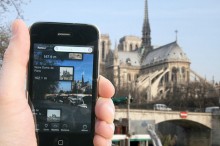
Prof. Lorenzo Cantoni of Università della Svizzera Italiana is glad to announce the Massive Open Online Course (MOOC) on eTourism Communication Perspectives. The course, fully free and open, will be delivered in October-November 2015; it will last 8 weeks and will require approximately three hours study time per week. This Swiss-made MOOC will take you on a terrific journey into eTourism and online communication. You will feel the pulse of ICTs and enjoy the beauty of Switzerland as a globally renowned tourism destination. Time to travel. Join today. Continue reading

The STARTS (Science, Technology and the Arts) Symposium, being held in Brussels on 22-23 June 2015 at BOZAR, is aimed at exploring the catalytic role of the Arts for innovation in business, industry and society and how to foster it. As representative of the Civic Epistemologies consortium Frederik Truyen, Professor at the Faculty of Arts of Katholieke Universiteit Leuven, is attending the event to present the project to the delegates. Continue reading


